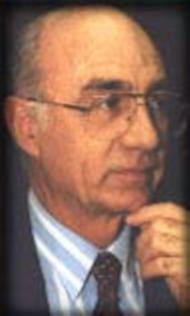Eduardo Bauzá facts for kids
Quick facts for kids
Eduardo Bauzá
|
|
|---|---|
 |
|
| 1st Chief of the Cabinet of Ministers | |
| In office 8 July 1995 – 5 June 1996 |
|
| President | Carlos Menem |
| Preceded by | Office created |
| Succeeded by | Jorge Rodríguez |
| Minister of the Interior | |
| In office 8 July 1989 – 15 December 1990 |
|
| President | Carlos Menem |
| Preceded by | Juan Carlos Pugliese |
| Succeeded by | Julio Mera Figueroa |
| Minister of Health | |
| In office 15 December 1989 – 20 September 1990 |
|
| President | Carlos Menem |
| Preceded by | Antonio Erman González |
| Succeeded by | Alberto Kohan |
| National Deputy | |
| In office 10 December 1987 – 8 July 1989 |
|
| Constituency | Mendoza |
| National Senator | |
| In office 5 June 1996 – 10 December 1999 |
|
| Constituency | Mendoza |
| Personal details | |
| Born | 16 November 1939 Mendoza, Argentina |
| Died | 17 February 2019 (aged 79) Mendoza, Argentina |
| Resting place | Parque de Descanso de Guaymallén |
| Political party | Justicialist Party |
| Alma mater | Universidad de Mendoza |
| Profession | Lawyer |
Eduardo Bauzá (born November 16, 1939 – died February 17, 2019) was an important Argentine lawyer and politician. He served as a minister during Carlos Menem's time as president. Later, he became the very first Chief of the Cabinet of Ministers in Argentina. He also served as a member of the Argentine Senate.
Contents
Eduardo Bauzá's Early Life and Career
Eduardo Bauzá studied law and graduated from the Universidad de Mendoza. He began his work in politics in the Mendoza Province. In 1973, he got his first political job in La Rioja Province. He worked as the secretary of development under Governor Carlos Menem.
In 1976, there was a big change in the government. Bauzá and Menem were removed from their positions. Bauzá was held for a few months, from May 1976 to April 1977.
He returned to politics in 1982. He helped create a group called "Federalism and liberation" within the Justicialist Party. This group was led by Carlos Menem.
Becoming a Deputy and Minister
In 1987, Bauzá was elected as a deputy for Mendoza. He later left this role to help Menem with his campaign for the 1989 election. Menem won the election and became president.
President Menem then appointed Bauzá as the Minister of the Interior. After six months, he became the Minister of Health. During his time as Health Minister, there was a problem with school supplies. The government had bought many school smocks at a high price. Not all of them were delivered, even though they had been paid for. Eduardo Bauzá was later cleared of any wrongdoing in 2005.
Later Political Roles and Retirement
After serving as a minister, Bauzá became the general secretary of the presidency. In 1994, the Constitution of Argentina was changed. This change created a new role called the Chief of the Cabinet of Ministers. Eduardo Bauzá was the first person to hold this important job in 1995.
He resigned from this role in 1996 due to health reasons. After that, he was elected as a senator. He finished his term as senator in 1999. Then, he decided to retire from politics and went back to Mendoza.
After Politics
In 2003, he helped Carlos Menem with his campaign for president again. Menem won the first round of elections. However, he decided not to continue in the second round against Néstor Kirchner. After this, Bauzá fully retired from party politics.
He then focused on his family's business. His great-grandfather had started a company that made noodles. This company is still in business today.
Later Years and Passing
In 2004, Eduardo Bauzá was diagnosed with a serious illness that affected his memory. His son said that even though the illness was severe, he remained clear-minded in his later years.
Eduardo Bauzá passed away on February 17, 2019. His family, which included five sons and seven grandsons, chose to have a private ceremony. He was buried at the Parque de Descanso de Guaymallén cemetery, near Mendoza.
See also
 In Spanish: Eduardo Bauzá para niños
In Spanish: Eduardo Bauzá para niños

